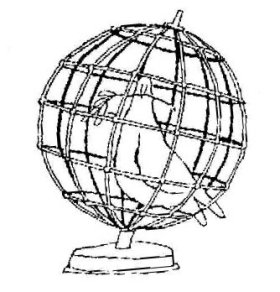

|
| Pasko Convicted Again |
In the end it came down to the reporter's handwritten notes, and the presumption that because they exist, Russian military journalist Grigory Pasko intended to pass them along to journalists in Japan. Convening on Christmas Day in Vladivostok, the Pacific Fleet military court again found Pasko guilty of espionage, and sentenced him to four years in prison.
First arrested in 1997, his initial espionage conviction was overturned on appeal, and he was released after 20 months in prison. A special military branch of the Russian Supreme Court permitted the second prosecution, which began last summer
As the few permitted observers reported, the five month long
secret trial was apparently as bizarre and bereft of balanced justice
as the first. The secret decree behind the charge of espionage was
never published nor registered with the Ministry of Justice.
Ninety-five percent of the evidence was gathered illegally. Ten
documents allegedly taken from Pasko's papers formed the basis of the
second trial, but the prosecutor only directed his attention to five
documents, and the judge, announcing the verdict, rejected four more,
leaving only the notes and no evidence the reporter had shared them
with anyone.

Pasko's defense, that the information in his notes was not even classified under prevailing law, passed without rebuttal. The facts weighed less than Pasko's "intention" as presumed by the court and prosecutors.
The Speaker of the Russian Federation Council urged Pasko to appeal to President Putin for a pardon, but Pasko has refused because he is innocent, and is instead pursuing the standard appeal and an additional one to the European Court of Human Rights in Strasburg.
The military prosecutor has appealed for a more severe sentence.
Among other evidence that the verdict was a forgone conclusion was the warden's comment when Pasko arrived in handcuffs Christmas night: "We've been awaiting you for weeks now, since we were told to expect you."
Journalists, human rights campaigners, businessmen and politicians rallied to Pasko's defense in at least ten Russian cities over the following weeks. A Moscow protest January 7 in Lubyanka Square was broken up by police with four arrests. Vladivostok authorities banned a planned January 10 demonstration at the offices of the secret police, military prosecutor and military court, but dozens gathered anyway around a banner declaring "Try Corrupt Admirals, Not Journalists."
Public declarations of support included that of the European Parliament and Natalie Miranova of the Movement for Nuclear Safety in Chelyabinsk, the Siberian nuclear weapons factory-city. She declared Pasko as the first political prisoner of the "new" Russia.
The last remaining independent TV network in Russia was shut down in late January as its reporters prepared an investigative report on Pasko's persecution. Filling the gap, state-run television broadcast a prime-time special February 7 featuring proud police and prosecutors denouncing the "spy for Japan."
On February 12, the secret decree behind Pasko's charges was invalidated by the military branch of the Russian Supreme Court. But the decision was not retroactive, leaving Pasko behind bars in legal limbo. A motion for release on appeal was denied.
For more information, contact Bellona, the Norwegian environmental group that has long supported Pasko, at Box 2141 Grünerlokka, N-0505 Oslo, Norway, email: bellona@bellona.no web: www.bellona.no/. Amnesty International has also adopted Pasko as a political prisoner and local chapters can provide more information.
 Alexander Nikitin, another persecuted and previously
imprisoned Russian military whistleblower, has asked on his behalf
that letters supporting Pasko be sent to elected officials and Pasko
himself. "The support of ordinary individuals is important. When I
was in jail I received letters from thousands of people." Grigory
Pasko can read English. Grigory Pasko, SIZO IZ-25/1, Partizanskiy
Prospekt 28-b, 690106 Vladivostok, Russian Federation.
Alexander Nikitin, another persecuted and previously
imprisoned Russian military whistleblower, has asked on his behalf
that letters supporting Pasko be sent to elected officials and Pasko
himself. "The support of ordinary individuals is important. When I
was in jail I received letters from thousands of people." Grigory
Pasko can read English. Grigory Pasko, SIZO IZ-25/1, Partizanskiy
Prospekt 28-b, 690106 Vladivostok, Russian Federation.
Letters supporting freedom of expression, Pasko's acquittal and his immediate freedom should be sent to President Vladimir Putin, The Kremlin, Moscow; Prosecutor General Vladimir Ustinov, Ul. Bolshaya Dimitrovka, d. 15 a, Moscow K 31 103793, and the Supreme Court of the Russian Federation, Military Collegium, Ul. Povarskaya 15, Moscow 121069 (all in the Russian Federation), with a copy to the Russian Embassy in your country.
